International buyers often worry that Thai Property Laws are over-complicated. Rest-assured, buying property in Thailand is straightforward and the laws are easy to follow and understand.
This article will provide a brief overview of the laws, restrictions, and details of foreign property ownership in Thailand.
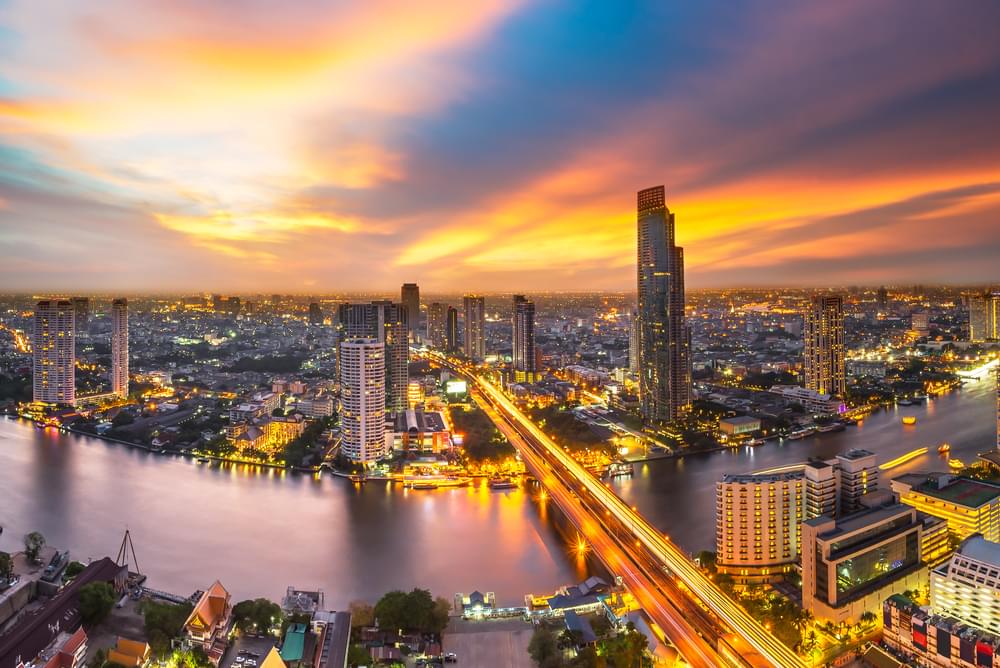
Can Foreigners buy property in Thailand?
The simple answer is “Yes” it is legally possible!
Property ownership by non-Thai nationals is possible with certain restrictions. Foreign investors and homebuyers can own Condominium Freehold Titles (Condos); however, they cannot directly own land or landed property (I.e., Villas, Townhouses and Shophouses).
Foreign investors and homebuyers can follow these 3 simple rules of property ownership in Thailand:
- Foreigners can own Condominium Freehold Titles (Condos).
- Foreigners cannot own land in Thailand.
- However, they can own buildings and structures located on a plot of land.
Therefore, the easiest way for a foreign buyer to own real estate and have their name registered on the title deed (Also known in Thai as “Chanote”, โฉนด) is to buy a condo.
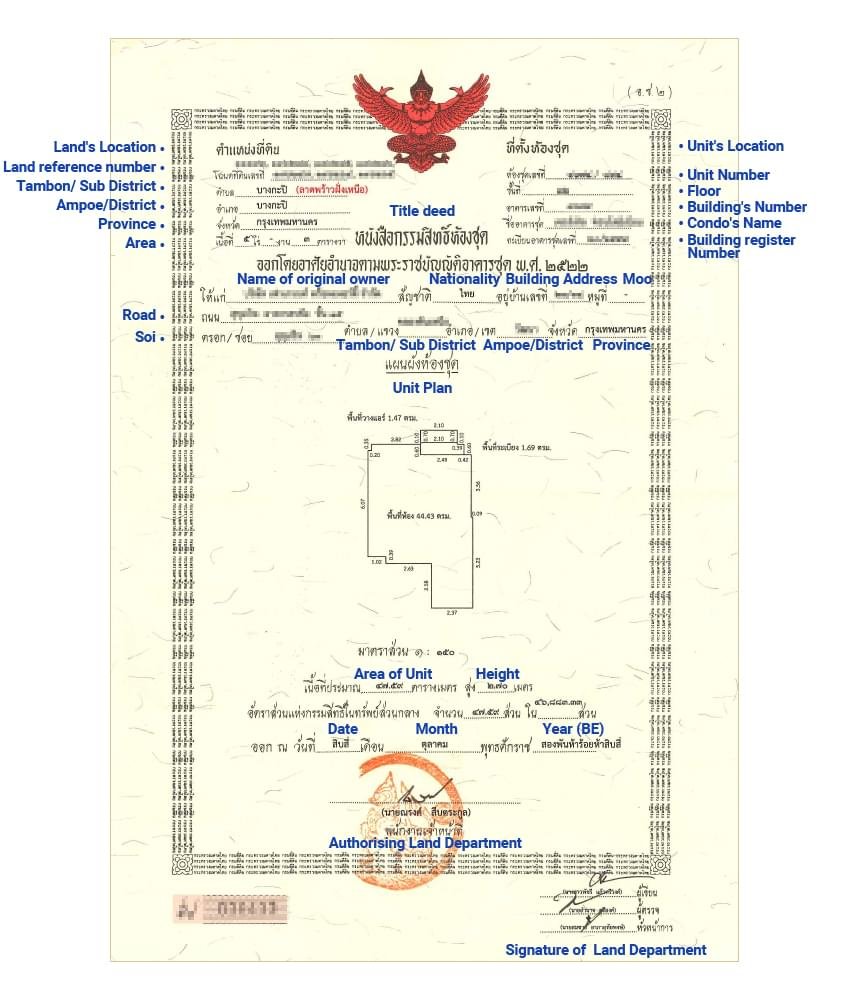
Example of a Condo Title Deed (Chanote, โฉนด)
It is important to note that over the years, foreign buyers and legal professionals have formulated alternative ownership structures to circumvent Thai land ownership restrictions. These alternative methods offer ways to “indirectly control” investments and enjoy the benefits of land ownership.
Some of these ownership structures are briefly explored in this article.
So, can foreign buyers own villas, houses, townhouses or land?
As explained above, foreigners cannot legally own land under their name in Thailand. However, Thailand’s legal framework does offer some alternative ownership and control options to foreign buyers!
While direct ownership and registration on the Title Deed (Chanote) is not possible, there are alternative holding structures that allow non-Thais to enjoy or “indirectly” control the use of land.
The most common ownership structures used for “indirectly” owning or enjoying the use of landed properties are usually:
- Buying Leasehold
- Buying Landed Property through a Thai Company
Acquisition of Land for Residential Purposes by Foreigners
A foreigner bringing in money of no less than 40 million THB, as specified in the Ministerial Regulation, into the Kingdom of Thailand for investment may apply for acquisition of land, not exceeding one rai, for residential purposes provided that permission has been granted by the Minister. According to section 96 bis of the land code, the land acquisition application must comply with rules and conditions established in the Ministerial Regulation.
Let’s explore the 3 easiest ways for an overseas buyer to own property in Thailand:
1. Buying a Condo
As mentioned above, buying a condo is the most simple and hassle-free way for foreigners to own property in Thailand. Non-Thai owners of condos are registered on the chanote, and they benefit from a special type of freehold title known as a Condominium Freehold.
A Condominium Freehold Title, explained in simple terms is as follows:
It is the division of a residential building into individual condominium units; with each unit benefiting from a proportional co-ownership of the common areas and co-owner association (I.e., Land, Building Amenities, and Juristic Management Office.)
To comply with the Condominium Act B.E 1979 and its amendments, condos need to ensure the following:
Only up to 49% of the condo’s registrable area can be sold to foreign buyers (Also known as the “Foreign Quota”), the remaining 51% must be owned by Thai nationals or Thai entities.
If the Foreign Quota of a condo is sold out, foreign buyers can only acquire units in the building on a leasehold basis.
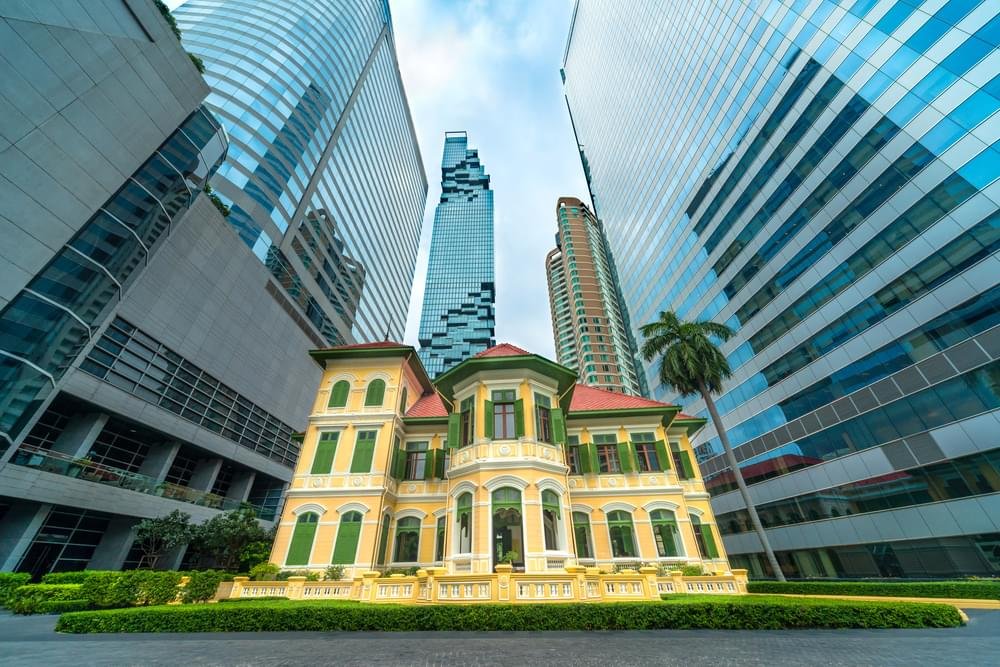
2. Buying Leasehold Property
Another option is simply to acquire land on a leasehold basis; in Thailand the maximum lease on land is 30-years, with the possibility to have a contractual agreement for two subsequent renewals (Total of 90-years lease).
While a leasehold may not offer ownership rights, it does offer the leaseholder exclusive rights to the use of that property. Leasehold rights are registered on the chanote and can be a simple way to enjoy a property without the hassle of additional and ongoing paperwork.
Retirees looking for a holiday home may find this solution attractive.
3. Buying Property through a Thai Company
Some buyers may prefer a holding structure, with more ownership rights than a leasehold title.
In this case, it is possible to set-up a Thai company for property acquisitions, this method sits in the “grey-area” of the Thai legal system. The Thai government and the Land Offices overseeing property transfers across the country, do not encourage this practice.
For a company to be classified as a “Thai Entity”, at least 51% of the shareholding needs to be held by Thai Nationals. The main concern of the authorities is the unauthorized use of “Nominee Thai Shareholders”, that are essentially “fake investors” used to facilitate property acquisitions.
However, provided foreign buyers comply with the law (Using “real” shareholders/ Thai partners), this option offers a good degree of indirect ownership and control. This ownership structure is commonly used by investors to purchase landed property such as villas with their spouse or foreign developers looking to acquire developable land plots!
Other Ownership Options
The 3 options above are the most common ways for foreign buyers to own property in the Kingdom. However, this is not an exhaustive list of foreign ownership options.
Other options include buying landed property and putting it under the name of a Thai spouse, partner or friend. However, this option requires a high degree of trust and in effect does not offer direct ownership or control of the real estate asset.
Affluent investors looking to buy under 1 rai of land with a minimum value of 40 MB can also seek special approval from the Thai Ministry of Interior to waive land ownership regulations. However, this method has been largely beyond the reach of retail buyers.
Why does Thailand impose these foreign property ownership regulations?
While these regulations may appear stringent and inflexible, these rules are in place to protect Thailand’s economic and social development.
Firstly, the regulations are in place to protect certain strategic national interests; notably agricultural land (To protect food supply) and land with natural resources (I.e., Mineral Deposits).
Secondly, the Kingdom’s real estate, even in the capital Bangkok, is relatively affordable and a potential influx of overseas investors could have an unintended inflationary effect on property prices.
To avoid a situation like in London, Hong Kong or New York where property prices have skyrocketed because of international buyers, Thailand enforces these laws to maintain balance and minimize disruption. Ensuring that Thais are not displaced and “priced out” of their housing needs.
Possible changes to Thai foreign real estate ownership laws?
The COVID-19 pandemic and the economic shock it has created for the Thai economy has reignited the possibility of changes in foreign ownership laws in 2021. With the proponents of change seeing it as an opportunity to reinvigorate and stimulate Thailand’s battered real estate market.
While there has been no official announcement by the Thai Government, numerous rumors have been circulating in the Thai national press:
1. Changes to the 49% Foreign Quota Ratio of Condominiums
Foreigners could be allowed to own between 70% and 80% of a condominium; with certain restrictions on annual general meeting voting rights.
2. Foreigners could be allowed to buy landed property
These landed properties would likely need to be part of a “housing project” and would probably be subject to a Foreign Quota system; where only 49% of a low-rise housing compound can be sold to foreign nationals.
3. Land Lease Extensions
Land leases could possibly be extended from 30-years to 50-years.
While this is positive news for the Thai real estate market, it is important to note that these legal changes are currently only speculation. The topic of foreign real estate ownership is a contentious subject. Thailand is still battling a surging 3rd wave of COVID-19 and the Thai Government’s attention is likely to be diverted to more immediate and pressing issues facing the country.
Should foreigners buy condos or landed property?
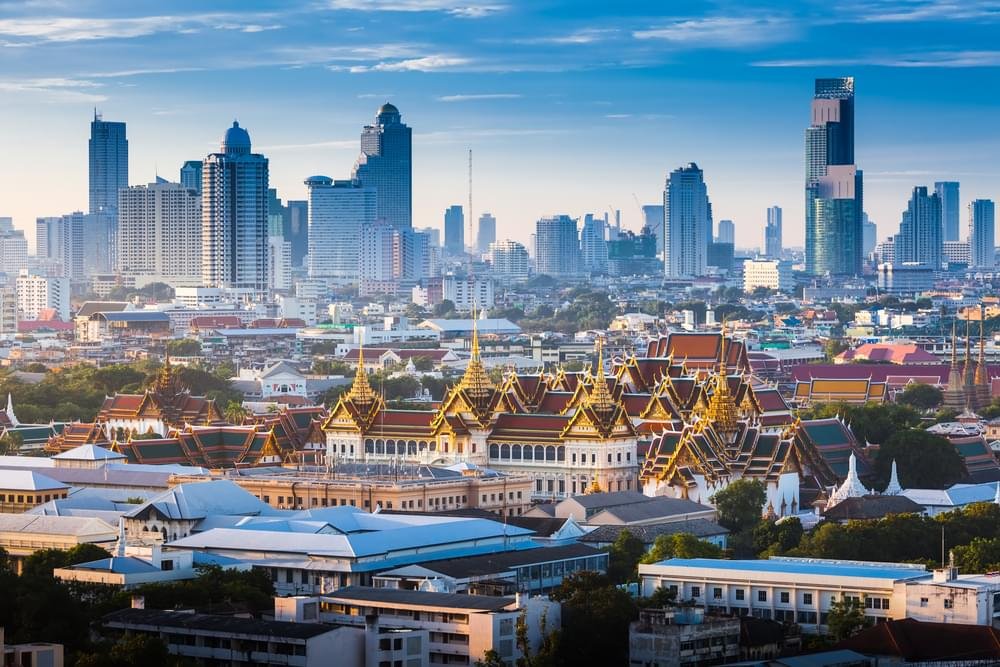
The answer to this question ultimately comes down to the buyer’s personal lifestyle preferences or investment objectives.
Landed property oftentimes offers amazing value on a price-per-square-meter basis; there is also the extra advantage of greater control over the land and the building. Comparatively condos due to their communal nature, can severely restrict refurbishments, renovations, general privacy and control.
On the other hand, condos offer the most straightforward and liquid property type, offering foreign buyers a hassle-free acquisition with a simple “exit strategy”. Due to the essential support services offered by condo building management (I.e., Security, key holding services and maintenance), they tend to be attractive turnkey rental investments. The ease and flexibility offered by condos make it an appealing choice for many overseas buyers!
Conclusion
If you made this far in the article, you will now know that foreigners CAN, in fact, buy property in Thailand. Just remember the rules and regulations and you will be able to buy the property of your desires easier than expected!
Have any further questions? Contact Us!
We hope your questions and concerns regarding property-buying for foreigners are answered well. However, if you do still have any further questions, don’t hesitate to speak up! Feel free to contact us, our property consultants will be very happy to help answer your questions.
*Fresh Property is a full-scope Property Agency specializing in Central Bangkok condos and homes. If you are looking to buy a property, you are welcome to browse our wide selection of resale condos, new projects or alternatively contact us on [email protected].

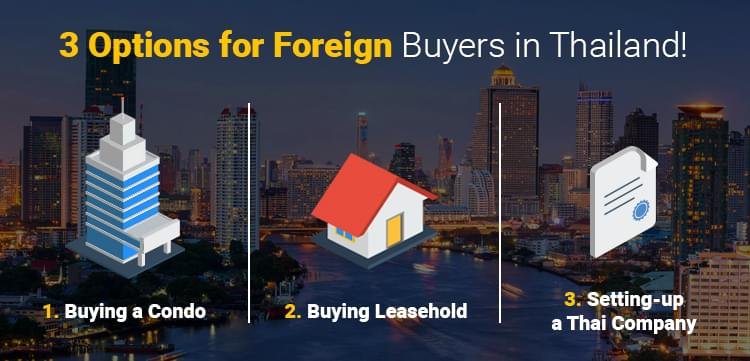

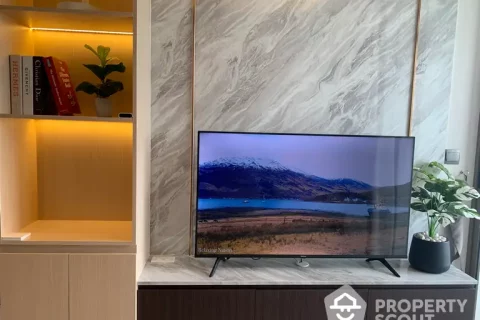
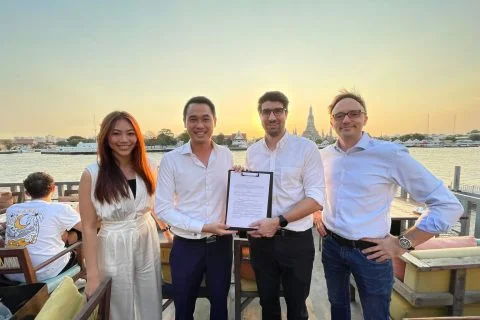
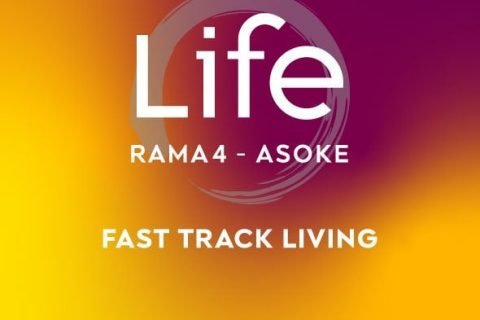
Steven says:
I know I can buy an apartment or condo in in my name in Thailand. What about a Townhouse. Can I buy one and have the Deed put in my name
Fresh Editorial says:
Hi Steven,
Unfortunately not directly under your name.
As a townhouse would be landed property and foreigners cannot own land directly.
Hope this helps.
Thanks
Zahir says:
Is that, lease hold is possible with tight restrictions like can’t do any sales during the 30 year leasehold like that ? And if the Thai owner die then what will happen next ? Who will become the owner ?
Bob the Builder says:
I want to get into the building business – get a plot of land, build 5-6 apartment units, and sell them to locals. I will possess the land only temporarily, until I sell off all the apartment units. Is there anyway to make this work? I don’t mind the government holding the land title in the interim, if there is legal framework for that. I trust the govt more than “a Thai wife”.
Jake says:
Hello. Can I buy a house or own land if I have permanent residency?
Thanks
Fresh Editorial says:
Yes you can buy a house or own landlord, however as a foreign national you cannot be registered on the Chanote (Title Deed).
Hope this helps.
Thanks, Fresh Editorial
Henry says:
Hi, due to travel bans, I’m appointing a POA for the ownership transfer of a newly purchased condo. I’m told that I need to provide my parents’ names for the official POA form recognized by the Land Department, is it common?
Fresh Editorial says:
Hey Henry, yes this is a normal standard in Thailand.
Peggy Chua says:
Hello Author,
What requirement I should meet dor buying a condo in Thailand?
Also, how much for the downpayment and can I get the property agency via online?
Thank you!
GB says:
Hi,
I have 13 year old twins with dual nationalities, Thai – UK with Thai Passports and ID Cards. Can land be bought in their name?
Fresh Editorial says:
Yes, since they are Thai Nationals land can be bought in their name.
Roland says:
Hi I am about to buy a condo in Bangkok, signed the contract last year and made some installments.
As it is completed now, they informed that due to a recent change in law I have to pay the full amount again directly to their account from my overseas account and will get later reimbursed for my previous payment.
Is that correct? I bought some apartment in the past and sent the money to my girlfriend account so she could settle stepwise the transfer. As proof of oversea transfer of the fund, the bank statement was sufficient.
Could you help with this or would you even offer support services on the transfer in dealing with the land office in Bangkok since COVID made traveling difficult at the moment.
Fresh Editorial says:
Hi Roland, that is correct.
However, if I were you I would still engage a third party condo inspector to check the unit for defects.
Once that inspection is conducted, you can usually transfer remaining amount to the developer.
I would say this requires no assistance from our end, as you are dealing with the developer.
Hope this helps.
Thanks,
Fresh Editorial
Ps: Kindly note, we are not legal advisors.
If you think there may be legal issues, please consult with a Law Firm.
Yvonne says:
Hi,
Im planning to buy a condo with my Thai spouse. However, bank agent informed us that we couldn’t apply for joint-mortgage. The mortgage loan only can be under my Thai spouse name. Any suggestion or idea that you can provide to protect my right since im gonna pay half of the loan payment.
Fresh Editorial says:
Hey Yvonne, this is a delicate matter and we think it is best for you to seek advise from a legal professional.
Apologies for the inconvenience.
Diego says:
Hi , I am.planning to buy a condo and I understand that being foreigner means owning 49%. Who owns the other 51%? The developer? or this means that I can join names in the title deed and have my Thai wife to own 51% of the property?
Thanks, I am trying to clear the confusionbin my head.
Fresh Editorial says:
Hi Diego, just to clarify 51% of the Condominium Building needs to be owned by Thai Nationals and Foreigners can only own up to 49% of the Condo Building.
So you could effectively own a Condo outright provided there is still 49% of Foreign Quota available.
Hope this makes sense.
Regards,
Fresh Property Team
Ken Boehnen says:
I’m interested in a townhouse in Phuket.
Do all townhouses include the land, or can they be treated like condos?
Fresh Editorial says:
Hi Ken, unfortunately “Condominium Freehold Units” are a special type of ownership title.
Therefore, townhouses cannot be treated like condos.
Amy says:
We are thinking of buying a house on 1 rai, which has a chanote. How many Thai people can be listed on the chanote? Also, if the chanote only lasts for 30 years what happens to our house – do we lose that after 30 years? Thank you
Sam kam says:
Can a foreigner but a condo for investment purposes n how do you repatriate the money back? Do you need to have a local bank account?
Fresh Editorial says:
Hi Sam, this is a great question and a topic we should cover in the blog. Foreigners can tranfer money out of Thailand just like Thai citizens. Based on requirements by the Bank of Thailand, banks may require to submit documentation as to the source of income and if it has been taxed properly. Any legally registered sale of property needs to go through the department of Land which will only approve of the sale once all tax obligations are fulfilled – so the proceeds of a sale will be fully transferrable with the receipt from the Department of Lands.